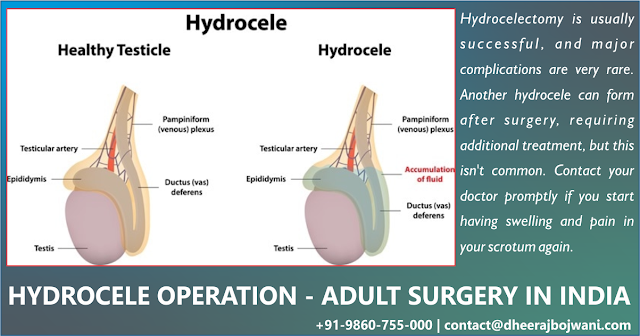Exploring Deep Brain Stimulation: Hope for Parkinson's in India
Overview:
Deep brain
stimulation (DBS) has emerged as a significant therapeutic intervention for
individuals suffering from Parkinson's disease, particularly in cases where
conventional treatments, such as medication, have proven insufficient in
managing symptoms. This neurosurgical procedure involves the implantation of
electrodes in specific areas of the brain, which are then connected to a pulse
generator implanted in the chest. The electrical impulses delivered by these
electrodes can modulate abnormal brain activity associated with Parkinson's,
leading to improvements in motor functions, such as tremors, rigidity, and
bradykinesia.
What Are The Benefits Of Deep Brain Stimulation For Parkinson's?
Deep brain stimulation for Parkinson’s disease in India has emerged as a transformative treatment option for individuals suffering from Parkinson's disease in India, offering a range of significant benefits that can greatly enhance the quality of life for patients. This neurosurgical procedure involves the implantation of electrodes in specific brain regions, which deliver electrical impulses to modulate abnormal neural activity associated with Parkinson's symptoms.
One of
the primary advantages of DBS is its ability to alleviate motor symptoms such
as tremors, rigidity, and bradykinesia, often leading to a marked improvement
in daily functioning and independence. Furthermore, deep brain stimulation for Parkinson’s
disease in India can reduce the need for high doses of medication, thereby
minimizing the side effects commonly associated with long-term pharmacological
treatment, such as dyskinesias. Additionally, the procedure is generally
reversible and adjustable, allowing for personalized treatment plans that can
be fine-tuned over time to meet the evolving needs of patients.
Why DBS Is The Top Choice For Parkinson's Care In India?
International patients increasingly choose deep brain stimulation (DBS) for the treatment of Parkinson's disease in India due to several compelling factors. Firstly, India offers advanced medical technology and skilled neurosurgeons who specialize in DBS procedures, often at a fraction of the cost compared to Western countries. This affordability of deep brain stimulation Parkinson’s cost in India, combined with the high quality of care, makes India an attractive destination for patients seeking effective treatment options.
Additionally, the country's
growing reputation as a hub for medical tourism is bolstered by its
well-established healthcare infrastructure, which includes modern hospitals
equipped with state-of-the-art facilities. Furthermore, many Indian medical
institutions have international accreditations, ensuring that patients receive
care that meets global standards. Lastly, the cultural diversity and
hospitality of India provide a welcoming environment for international
patients, allowing them to feel comfortable and supported throughout their
treatment process.
Deep Brain Stimulation Parkinson’s Cost In India
Deep brain stimulation (DBS) for Parkinson's disease has emerged as a viable treatment option in India, with deep brain stimulation parkinson's cost in India that are generally more accessible compared to many Western countries. The overall deep brain stimulation parkinson's cost in India, which includes pre-operative assessments, the surgery itself, and post-operative care, can range significantly based on the hospital and the expertise of the medical team involved.
Typically, the total cost may vary from approximately INR 5 lakhs to
INR 10 lakhs, which is considerably lower than the costs observed in the United
States or Europe, where similar procedures can exceed USD 100,000.
Additionally, many hospitals in India offer financing options and packages that
can further alleviate the financial burden on patients. The affordability of deep brain stimulation Parkinson’s cost in India is further enhanced by the
availability of skilled neurosurgeons and advanced medical facilities, making
it an attractive option for both domestic and international patients seeking
effective management of Parkinson's disease.
Conclusion
Deep brain stimulation (DBS) has emerged as a significant therapeutic option for individuals suffering from Parkinson's disease, particularly in cases where conventional treatments have proven insufficient. Clinical studies have demonstrated that DBS can lead to substantial improvements in motor symptoms, such as tremors, rigidity, and bradykinesia, thereby enhancing the overall quality of life for patients. Furthermore, the adaptability of DBS settings allows for personalized treatment, enabling adjustments based on the patient's evolving condition.



